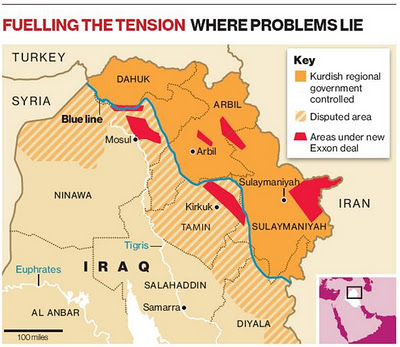“When incorporated into contracts, compliance with the standard becomes enforceable under contract law,” says Christopher Mayer, director, Armed Contingency Contractor Policies and Programs at the U.S. Department of Defense. “Aside from direct legal action, the contracting activity can assess penalties, demand redress, withhold payment, and implement other measures to include contract termination to promote compliance and encourage company adherence.”
This post is the second installment of the ASIS ANSI approval process news that has been coming out. The first step was putting together the standard, and this part identifies the process of auditing companies. Which is very important, because you want a very impartial and reputable group to do this assessment. The strength of the certification is all based on the integrity of the auditing organization, and these guidelines spell out that process.
“The integrity of the auditing process and the competence of auditors are key to a credible conformity assessment process” says Marc Siegel, Commissioner, ASIS International Global Standards Initiative. “This standard builds on the time-tested ISO/IEC conformity assessment process to raise the bar for auditing in complex environments. By defining auditor competence and a transparent auditing process, the ANSI/ASIS Conformity Assessment Standard helps assure that PSCs will be treated fairly and only those that live up to the conformance requirements of the PSC.1 standard get certified.”
Which is great. The other thing with this is that a standard should not be something that is bought, but something that is earned, despite the size of the company. So hopefully this part of ANSI does not get abused. But also, if the standards are public and well known, then there will not be any contention about it’s interpretation. It is a national standard, and not something that changes from state to state. (with an ISO or international standard, it will be world wide, and you can see why this would be important for contracting on a global scale)
The other part that is interesting, is the quote up top. That kind of language is what puts teeth into adhering to these standards– which is great. It means companies will actually have to get serious about quality and living up to that ANSI certification, or lose contracts or get heavily penalized because of actions on that contract. Like the quote says, ‘compliance with the standard becomes enforceable under contract law’.
Well, next stop is the ISO and we will see how that goes. The big picture for all of this stuff is that it only helps to ‘legitimize’ this industry and make us more of an asset to clients, and less of a liability. It gives clients more tools to pick quality companies, and to penalize companies who veer from their code of conduct as stated in the contract they signed. In essence, it evens the field a little when it comes to the principal-agent problem.
Like with the last ASIS publication, you can go to their website and buy a copy. Or if you are a member, it is free. Although if you search around, you will find copies floating around that folks have posted on the internet. –Matt
ASIS International Receives ANSI Approval for PSC.2 Conformity Assessment Standard
June 14, 2012
ASIS International(ASIS), the preeminent organization for security management professionals worldwide, received ANSI approval for its standard, Conformity Assessment and Auditing Management Systems for Quality of Private Security Company Operations(ANSI/ASIS PSC.2-2012). Developed by an international Technical Committee comprised of members from civil society organizations, as well as PSCs and their clients, this standard provides requirements and guidance for conducting a conformity assessment of the ANSI/ASIS PSC.1-2012, Management System for Quality of Private Security Company Operations – Requirements with Guidance (PSC.1) Standard.
Private Security Service Providers including Private Security Companies (collectively “PSCs”) play an important role in protecting state and non-state clients engaged in relief, recovery, and reconstruction efforts; commercial business operations; diplomacy; and military activity. Independent, external conformity assessment and certification of a Quality Assurance Management System is one means of providing assurance that a PSC has implemented a system for the management of quality of service consistent with respect for human rights, legal obligations, and good practices, as specified in the PSC.1 standard. Clients who use the services of PSCs have indicated they will use the ANSI/ASIS PSC.1-2012 in their contracting processes. The PSC.1 Standard serves as a differentiator for companies that can provide quality of service, manage risk and respect human rights.

